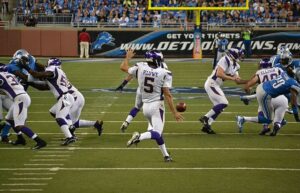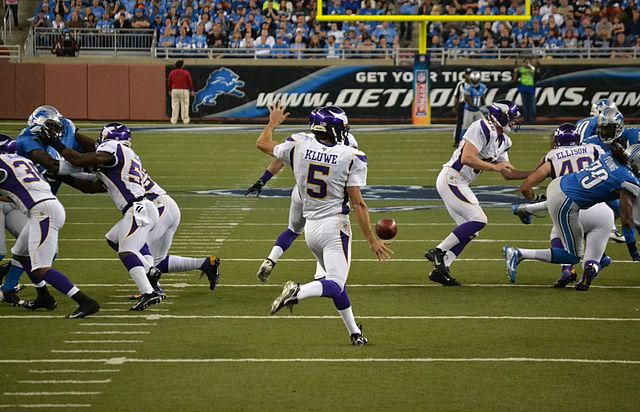 Football season may be over, but it’s worth talking about something that made this season a little unusual: it seems more and more athletes are speaking their minds. There are many likely reasons. The strike Social media, in particular Twitter, have narrowed the distance between players and fans, and then there’s the fact that nothing seems to escape the scrutiny of the online world in general: Aaron Rodgers can become a Tumblr icon while Manti Te’o can find himself the victim of a Meme Generator onslaught, and athletes feel compelled to react.
Football season may be over, but it’s worth talking about something that made this season a little unusual: it seems more and more athletes are speaking their minds. There are many likely reasons. The strike Social media, in particular Twitter, have narrowed the distance between players and fans, and then there’s the fact that nothing seems to escape the scrutiny of the online world in general: Aaron Rodgers can become a Tumblr icon while Manti Te’o can find himself the victim of a Meme Generator onslaught, and athletes feel compelled to react.
This probably isn’t the way the big-wigs like it. Minnesota Vikings kicker Chris Kluwe, himself famous his outspoken opinions on the labor dispute and in favor of marriage equality, explains why in Mother Jones:
“As athletes, we are encouraged to not say a whole lot because that can hurt the team. It’s something we all learn. It generally starts in college, and then it’s definitely in the pros. You don’t want to give other teams bulletin-board material. You have to be very careful, very measured with your answers, and that’s why you hear a lot of the same clichés coming out time after time.”
However, as Kluwe’s work has become a staple on Deadspin, you’ve got to wonder where exactly he learned how to move past cliché to be a funny, engaging writer. And if, after reading some his opinion pieces, it seems like Kluwe specializes in trolling, that’s no accident: Kluwe (like many young people, I imagine) came into his own as a writer through Internet flame wars:
“Well, my writing career was primarily born from the World of Warcraft realm forums, where if you go after someone, you’d better make sure you’ve got your ducks in a row or they’re going to come right back at you. When I saw [Nate Jackson’s] column I laughed because (a) it was pretty funny; he had some good lines in there; and (b) this is exactly how I’d been writing for the last like four years because I’d been playing WoW.”
Kluwe’s story is interesting because it reminds us that the digital age has steeped us in written language. And if you’ve got some self-awareness in how you go about it, you can always look at what you’re reading and learn something about what makes writing effective or ineffective in that genre. Kluwe again:
“I started browsing the forums to just kind of entertain myself, and I noticed that you could get some pretty funny conversations going if you knew how to write. For me it was about, okay, if I want to call someone out, the only way to do so without being ignored is to craft a completely logical argument that has a hook. And for me that was creative insults—because who doesn’t like a creative insult?”
Unsurprisingly, after football, Kluwe’s thinking about turning to writing full-time. That’ll be interesting.

